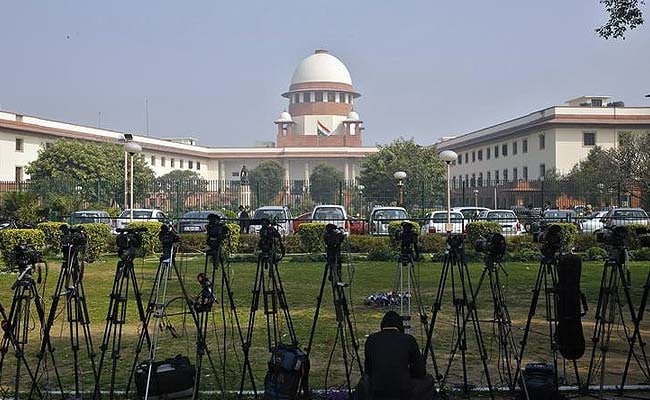
In a landmark judgement towards eradication of criminalisation of politics, the Supreme Court today ruled that if any elected representative suppressed information on pending criminal cases, it could set aside their election.
"Non-disclosure of criminal antecedents amounts to corrupt practice by the candidates. The crucial recognized ideal which is required to be realised is eradication of criminalisation of politics and corruption in public life," a two-judge bench, headed by Justice Dipak Misra, observed.
"Disclosure of criminal antecedents of a candidate, especially, pertaining to heinous or serious offence or offences relating to corruption or moral turpitude at the time of filing of nomination paper as mandated by law is a categorical imperative," the court added.
The judgement came in a 2006 case relating to the nullification of election of a panchayat member in Tamil Nadu's Coimbatore by the Madras High Court which found him guilty of not disclosing pending criminal cases against him while filing his nomination for elections. He had challenged the order in the Supreme Court which today upheld the lower court's order and imposed a fine of Rs 50,000 on him.
In 2013, the Supreme Court had ruled that elected lawmakers would stand disqualified if convicted by a court and sentenced to two years of imprisonment or more. AIADMK Chief J Jayalalithaa stepped down as chief minister of Tamil Nadu in September last year in line with that order after she was found guilty in a disproportionate assets case. She also cannot contest elections for 10 years as part of the ruling.
Track Latest News Live on NDTV.com and get news updates from India and around the world

